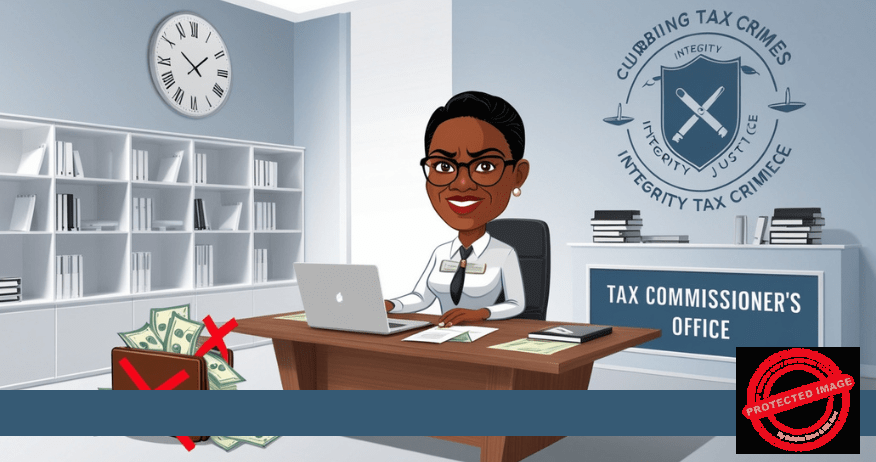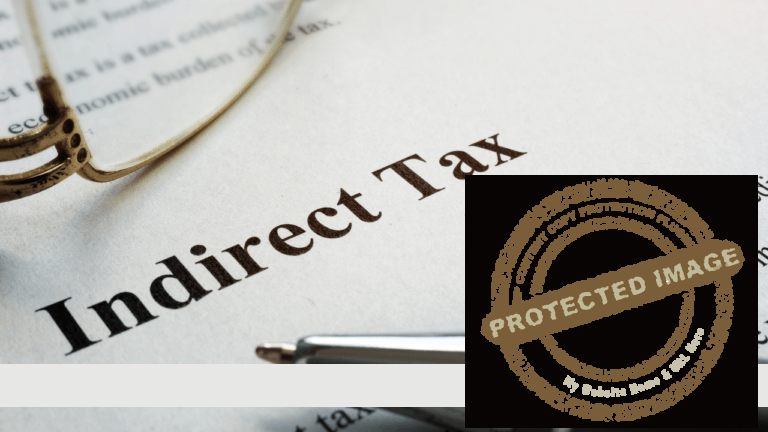The tax commissioner is charged with implementing tax laws with a special emphasis on tax collection in the midst of rampant tax crimes. The tax Commissioners are taking actions to minimise incidences of tax crimes from tax evasion by taxpayers in the country.
Affiliate Disclosure: This post may contain affiliate links – I may receive a small commission if you purchase through links, at no extra cost to you. Read HERE
As a taxpayer, it is important to know the actions so that you are not caught off-guard:
1. Increased Use of Personal Identification Number (PIN):
A PIN is required for various transactions, such as opening an electricity account, bank account, or land transactions. This requirement helps the tax commissioner track financial activities and ensure taxpayers pay their fair share of taxes.
2. Sealing Loopholes in Tax Laws:
The government is working to seal gaps in the tax rules, regulations, and laws that some taxpayers exploit to avoid paying taxes. By sealing the loopholes, the tax commissioner can better ensure everyone follows the same rules, regulations, and laws and contributes to their share of taxes to the economy.
3. Anti-tax Avoidance Legislation:
Anti-tax avoidance laws prevent taxpayers from taking action to avoid paying taxes. This Legislation makes it harder for taxpayers to hide income or use complicated schemes to reduce their tax bills unfairly.
4. Transfer Pricing Provisions:
These rules apply to taxpayers who transact business in multiple countries. The rules ensure that taxpayers fairly report profits made in the country, preventing them from shifting income to other countries with lower taxes to avoid paying taxes locally.
5. Thin Capitalization Rules:
The rules limit the debt a company can use to reduce taxable income. This prevents taxpayers from borrowing too much and claiming high-interest expenses to lower their income taxes. Thus ensuring they pay their fair share.
6. Tax Commissioner Audits:
The tax commissioner conducts tax audits to review taxpayers’ financial documents and records to ensure they pay the correct taxes. The audits help detect fraud, mistakes, and under-reported income, increasing tax compliance.
7. Use of Technology for Tax Audits:
The tax commissioner uses technology to improve tax audits, such as the VAT Auto Assessment (VAA) system, TIMS, ETIMS, or cross audits, automatically checking if businesses have accurately reported and paid VAT. The technology helps identify errors and reduces tax evasion, making the audit process faster and more efficient.
8. Imposition of Penalties and Interest:
To encourage timely and accurate tax payments, the tax commissioner imposes penalties and interest on late or incorrect tax filings. These penalties and interest act as a deterrent for tax evasion and help ensure that taxpayers meet their obligations.
9. Enforcement and Collection Measures:
The tax commissioner has several tools to enforce tax laws and collect unpaid taxes, including agency notices, freezing bank accounts, or seizing assets if taxes are not paid. The measures help the tax commissioner recover funds from people or businesses who try to avoid their tax responsibilities.
10. Prosecutions in Courts of Law:
When taxpayers deliberately break tax laws, the tax commissioner may take them to court. The legal actions warn others, showing that tax evasion is a serious offense and that there are real consequences for breaking the law.
11. Issuing of Tax Compliance Certificates (TCC):
The certificate is a document that shows a taxpayer is up-to-date on their taxes. A TCC is required for certain business transactions, government contracts, or licenses. This encourages people to stay compliant.
12. Tax Education for Taxpayers:
The tax commissioner provides tax education to help people understand the filing processes, tax responsibilities and obligations, and deductions. Taxpayers with high tax literacy are more likely to comply with tax rules, regulations, and laws. Therefore, tax education is critical to improving compliance.
13. Tax Customer Care Centers:
Tax customer care centers provide support and answer tax questions. These centers make it easier for taxpayers to get help, file returns correctly, and understand their tax obligations, which can reduce errors and non-compliance.
14. Recruitment from Security Agencies:
The tax commissioner sometimes recruits personnel from security agencies and other areas to help enforce tax laws and prevent tax evasion. The recruits bring needed skills in enforcement and investigation, strengthening the tax commissioner’s ability to identify and address tax crimes.
15. Capacity Building:
The tax commissioner invests heavily in training employees and improving operating systems. These measures will help the Commissioner collect taxes and enforce tax rules, regulations, and laws more effectively. More robust capacity means better services for taxpayers and improved compliance.
16. Creating Specific Tax Offices:
The tax commissioner has established specialized offices, like an international tax office, digital tax office, etc., to focus on specific tax areas. For example, the global tax office handles cases related to foreign businesses and cross-border transactions. This ensures taxes are collected relatively in any complex situation.
These measures are part of the tax commissioner’s strategy to improve tax compliance, make tax collection more efficient, and ensure taxpayer contributes their fair share of taxes towards the country’s development.




